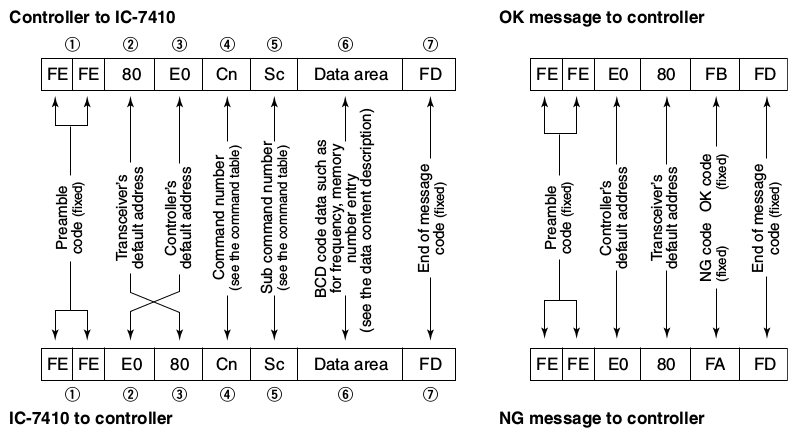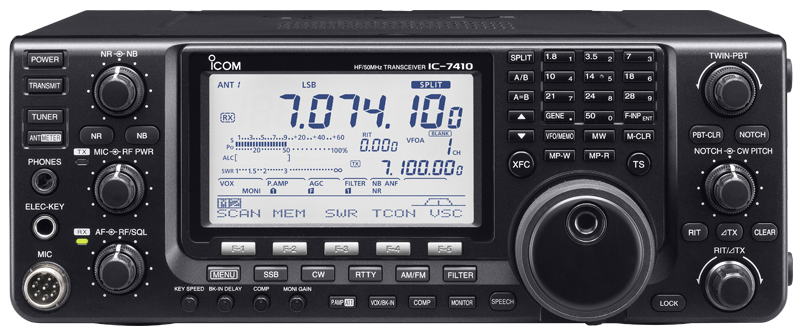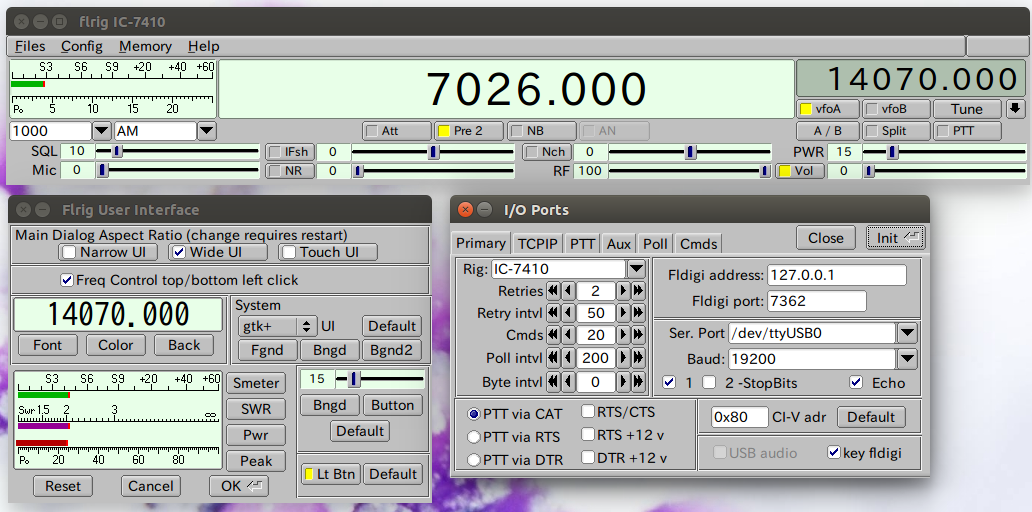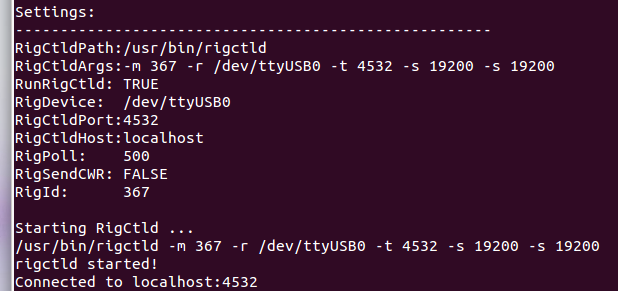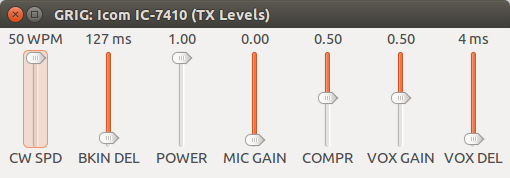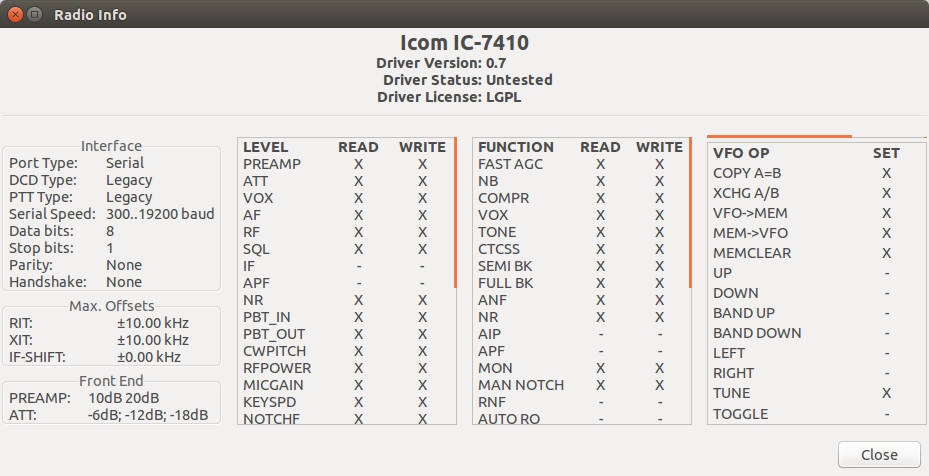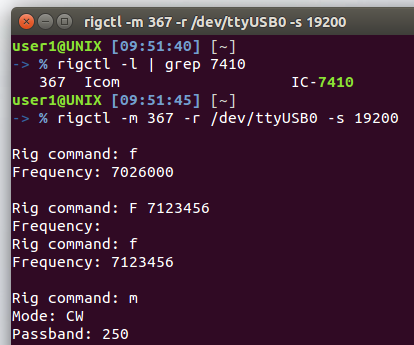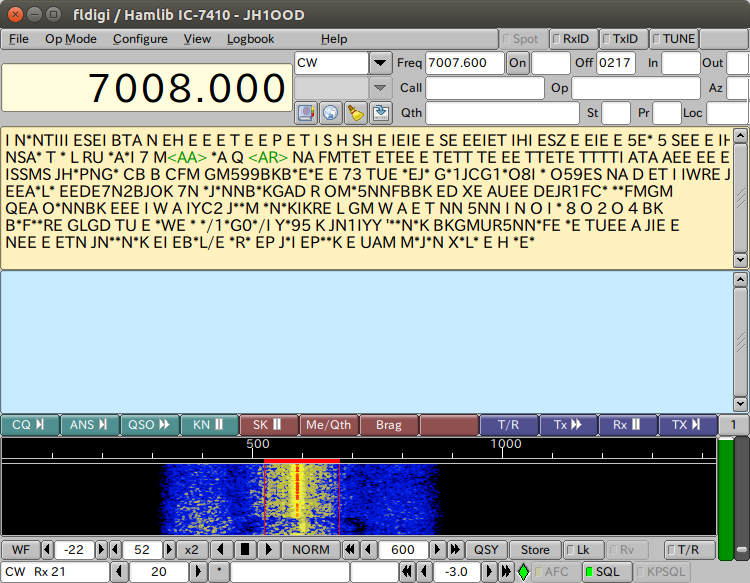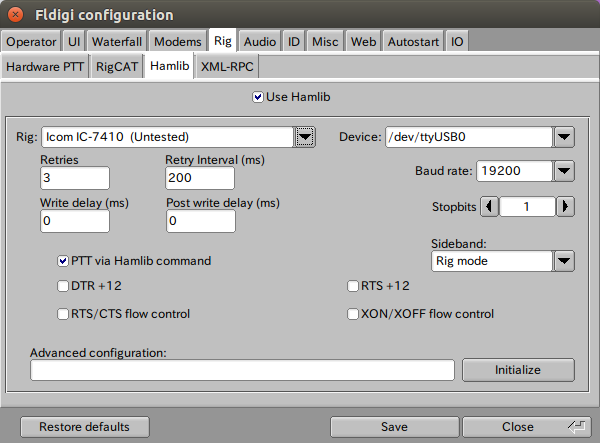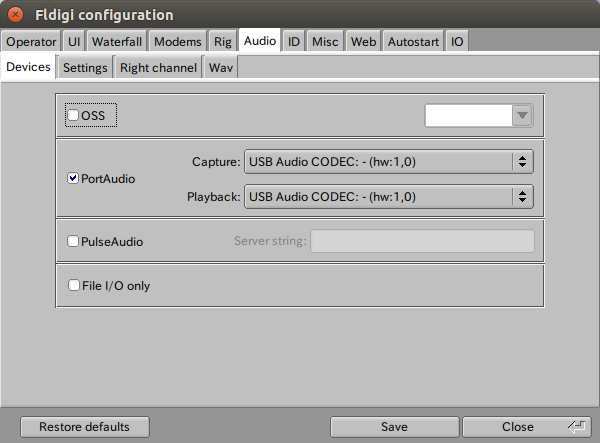Here I am trying to change first the mode, and then the passband width (=filter). What happens is that the mode changes alright, but not the passband width.
% grig -d 5 -m 367 -r /dev/ttyUSB0 -s 19200 2> grig.log
I found that the debug level of 5 is necessary to gather all the traffic between grig and IC-7410.
% cat grig.log | colrm 1 40 | colrm 40 | grep "fe fe" | uniq | egrep 'e0 04|e0 06|80 04|80 06'
fe fe 80 e0 06 00 fd <- Send operating mode LSB
fe fe 80 e0 04 fd <- Read operating mode
fe fe e0 80 04 00 02 fd <- mode is LSB and FIL2
fe fe 80 e0 06 01 fd <- Send operating mode USB
fe fe 80 e0 04 fd <- Read operating mode
fe fe e0 80 04 01 02 fd <- mode is USB and FIL2
fe fe 80 e0 06 02 fd <- Send operating mode AM
fe fe 80 e0 04 fd <- Read operating mode
fe fe e0 80 04 02 02 fd <- mode is AM and FIL2
fe fe 80 e0 06 03 fd <- Send operating mode CW
fe fe 80 e0 04 fd <- Read operating mode
fe fe e0 80 04 03 02 fd <- mode is CW and FIL2
fe fe 80 e0 06 04 fd <- Send operating mode RTTY
fe fe 80 e0 04 fd <- Read operating mode
fe fe e0 80 04 04 02 fd <- mode is RTTY and FIL2
(so far so good, now I'm trying to change the passband width (=filter).)
fe fe 80 e0 06 04 fd <- Send operating mode RTTY
fe fe 80 e0 04 fd <- Read operating mode
fe fe e0 80 04 04 02 fd <- mode is RTTY and FIL2
fe fe 80 e0 06 04 fd <- Send operating mode RTTY
fe fe 80 e0 04 fd
fe fe e0 80 04 04 02 fd
fe fe 80 e0 06 04 fd <- Send operating mode RTTY
fe fe 80 e0 04 fd
fe fe e0 80 04 04 02 fd
fe fe 80 e0 06 04 fd <- Send operating mode RTTY
fe fe 80 e0 04 fd
fe fe e0 80 04 04 02 fd
It seems only the first parameter (Operating mode) is sent, but not the second parameter (Filter setting). Is that the cause of the problem?



